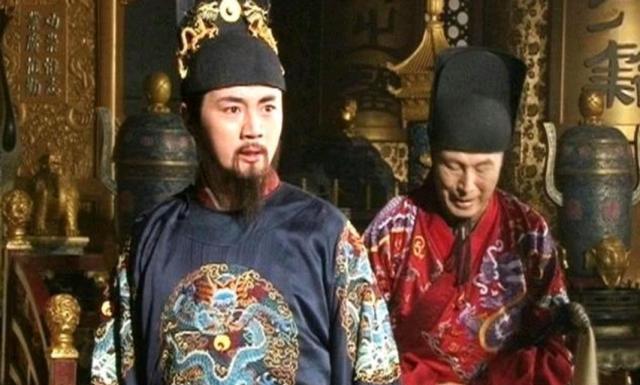The reasons for the demise of the Ming Dynasty are very complicated, ranging from the old problem of land annexation in traditional dynasties, the rigidity and decay of the political system, the influence of the climate of the Xiaoice River, and even the plague theory. As for the relationship between the ming dynasty's national fortunes and Wei Zhongxian's and the eunuch forces, I think it is not very related, let alone that there is no objective basis for saying that "Wei Zhongxian does not die, and Daming does not perish."

It is true that the rise of eunuch power has indeed effectively balanced the Donglin Party to a certain extent and avoided the political significance of the civilian official clique, but relying on eunuchs to suppress the civil servants and cause the eunuch clique to grow larger is not a greater threat to the imperial power? Moreover, the party and government form in the late Ming Dynasty has shown an extreme imbalance, the power of eunuchs has fallen to the opposition, and even deceived the emperor, playing with the emperor between the hands, and the emperor has become a puppet of the eunuch clique, which is no longer a simple factional struggle problem.
Of course, the rule of the country in successive dynasties depends on high-level intellectuals (civilian officials), which is a normal and correct logic, as long as the king is strong enough to control the civilian official group and thus move towards prosperity. I have never heard that the castration party with no ink on its chest can turn the tide and make the Ming Dynasty not perish. It is a pity that the civil official clique at the end of the Ming Dynasty did not have the talents of the pillars, did not have the able ministers who knew how to manage money, and there were few loyal ministers who had opinions and responsibilities, so even the talentless and unscrupulous villains such as Wen Tiren and Wei Zaode could be mixed into powerful ministers, and if they were replaced by Zhang Juzheng, Yu Qian and other officials, they might be able to continue their lives for the Ming Dynasty.
The eunuch clique of the late Ming Dynasty was so vicious that it was not that the emperor of the late Ming Dynasty did not know it, but that it was deliberately indulgent.
First, because the late Ming literati clique was indeed too inefficient, and corruption was serious, and the ability to amass wealth for the state was inferior to that of eunuchs, because the financial income at the end of the Ming Dynasty could not make ends meet, so the late Ming monarchs had to rely heavily on the eunuch clique to raise their own much-needed military expenses.
The second was that when he arrived at the Emperor of the Apocalypse, he was already deeply aware of the heinous power of the eunuch clique, especially Wei Zhongxian's heinous crimes, but it was inconvenient for him to judge the people he promoted as traitors, so he deliberately left it to the Chongzhen Emperor to let Chongzhen eradicate Wei Zhongxian's prestige as a new emperor in the imperial court and change the pathological political model of the late Ming Dynasty.
In addition to the serious internal decay in the late Ming Dynasty, the re-emergence of external forces such as the Jurchens and mongols was also an important factor affecting the national fortunes of the Ming Dynasty. Even if there was no civil strife in the late Ming Dynasty such as Li Zicheng and Zhang Xianzhong, it would be difficult to resist the brave and warlike Mongol cavalry and the Eight Banner Army just by looking at the finances and military strength of the late Ming Dynasty. The change of Tumu fort is a good reflection, there have been changes between the strengths of the two countries, even the later Qing regime, if not Kangxi's imperial conquest, was almost driven out of the Central Plains by the Mongols, so external forces should also be taken into account.
Therefore, there is not much connection between the demise of the Ming Dynasty and the eradication of eunuch forces, but more because of the long-term political corruption and economic ill-health of the late Ming Dynasty, which led to the accumulation of Chongzhen dynasty, coupled with the growth of external forces, it is almost impossible to change the direction of history by relying on individual strength alone.